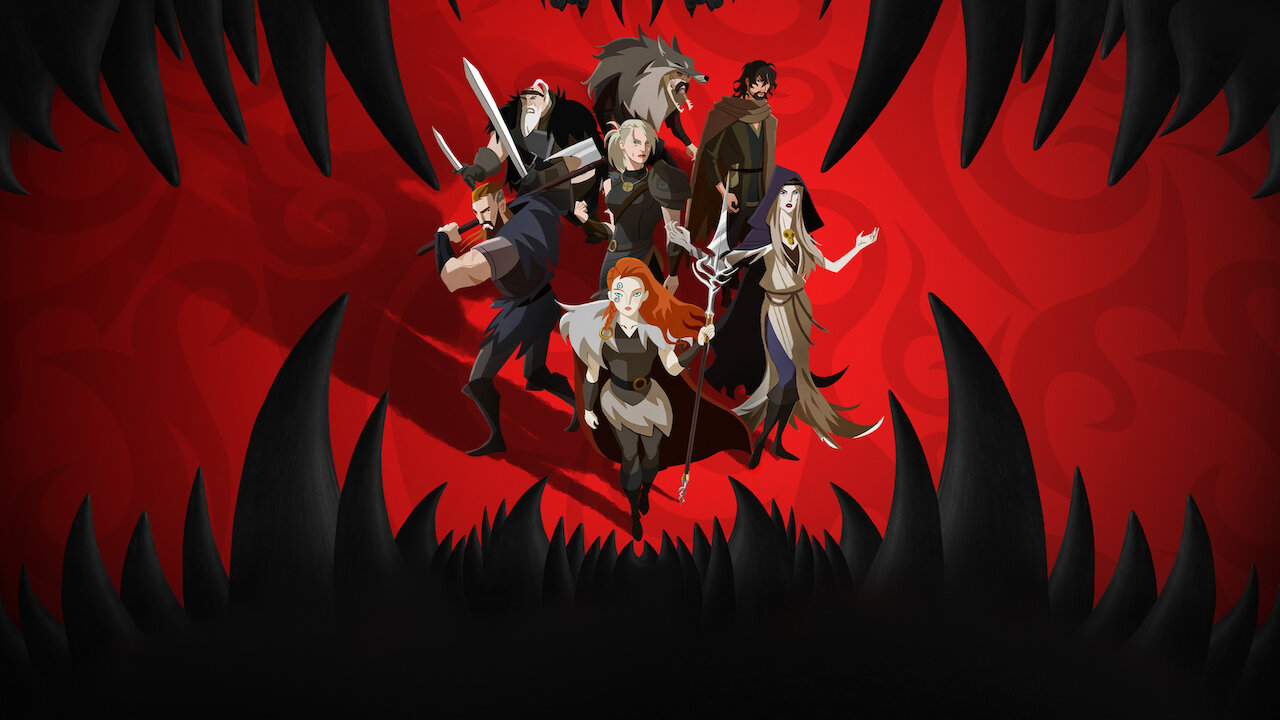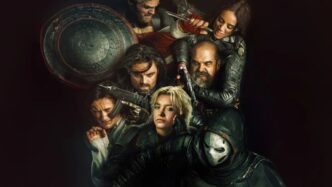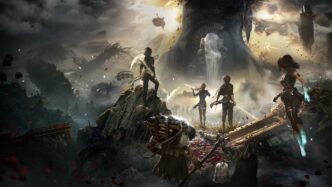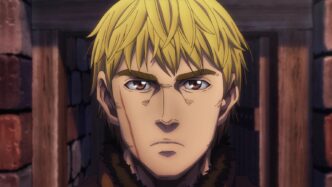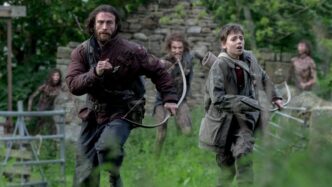Zack Snyder’s animated series Twilight of the Gods arrives with all the grandeur and visual splendor one would expect from the director known for his epic depictions of larger-than-life characters and battle sequences. However, beneath the surface of its Norse mythology-inspired visuals lies a show grappling with deeper questions of grief, vengeance, and the consequences of unchecked rage. While Twilight of the Gods promises a thrilling ride through the mythological landscape, the results are mixed, with moments of brilliance occasionally hampered by pacing issues and uneven character development.
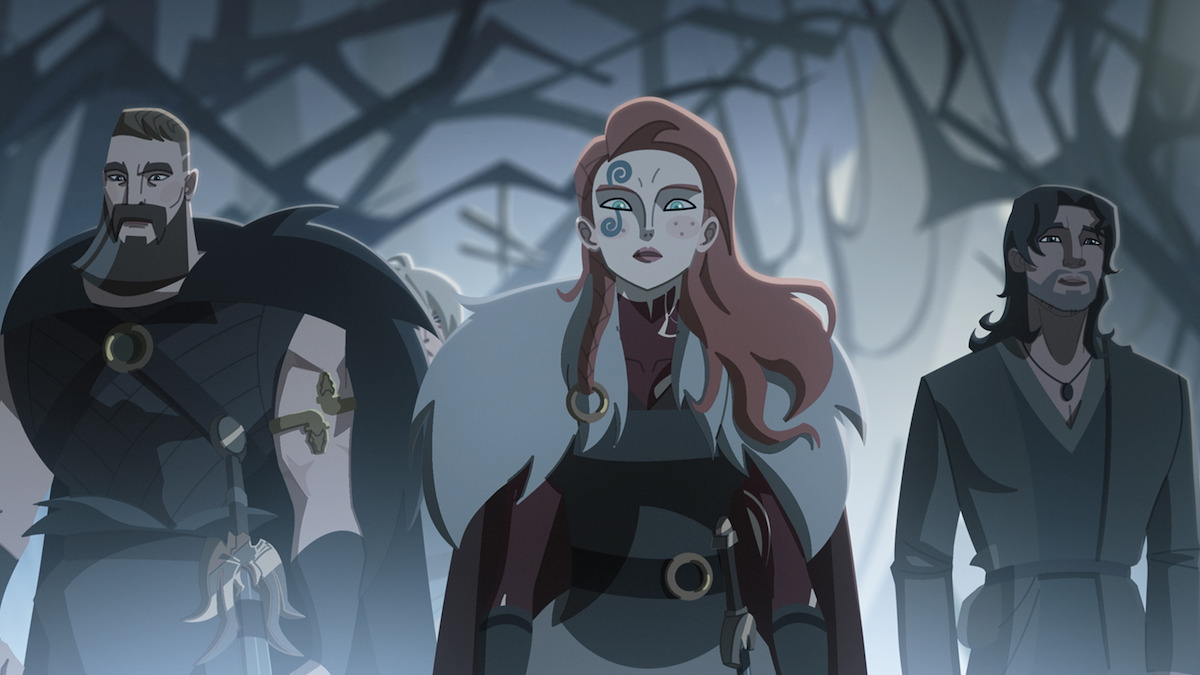
At the heart of the story is Sigrid (voiced by Sylvia Hoeks), a half-giant warrior whose wedding to King Leif (Stuart Martin) is abruptly ruined when Thor, god of thunder, crashes the event in search of his brother, Loki (Paterson Joseph). Thor’s arrival is anything but peaceful, as he unleashes a fury that leaves Sigrid’s village in ruins. This sets the stage for a revenge-driven quest, where Sigrid vows to kill the very gods responsible for the massacre. What follows is a tale steeped in violence and mythology, as Sigrid and Leif, alongside a group of warriors, embark on a journey to challenge the gods themselves.
From the very first episode, it’s clear that Snyder’s signature style permeates every frame of Twilight of the Gods.
The animation is beautifully rendered, with grand battle scenes, towering gods, and vibrant colors that draw viewers into a mythological world. Slow-motion sequences abound, particularly during the action scenes, giving Snyder’s fans plenty to marvel at visually. The collaboration with French studio Xilam and Snyder’s production company, The Stone Quarry, creates a world that is as much about spectacle as it is about story. However, while the animation shines, the series occasionally struggles to match this level of depth in its narrative.
Sigrid’s quest for vengeance is a compelling setup, but the show’s fast-paced episodes—each clocking in at under 30 minutes—leave little room for the story to fully breathe. Major plot points, such as the gathering of Sigrid’s team of warriors, are resolved too quickly, minimizing the tension and emotional stakes.
This rushed approach to storytelling is one of the show’s biggest flaws. Just as we begin to connect with the characters, the plot whisks them off to the next battle or confrontation, leaving character development in the dust.
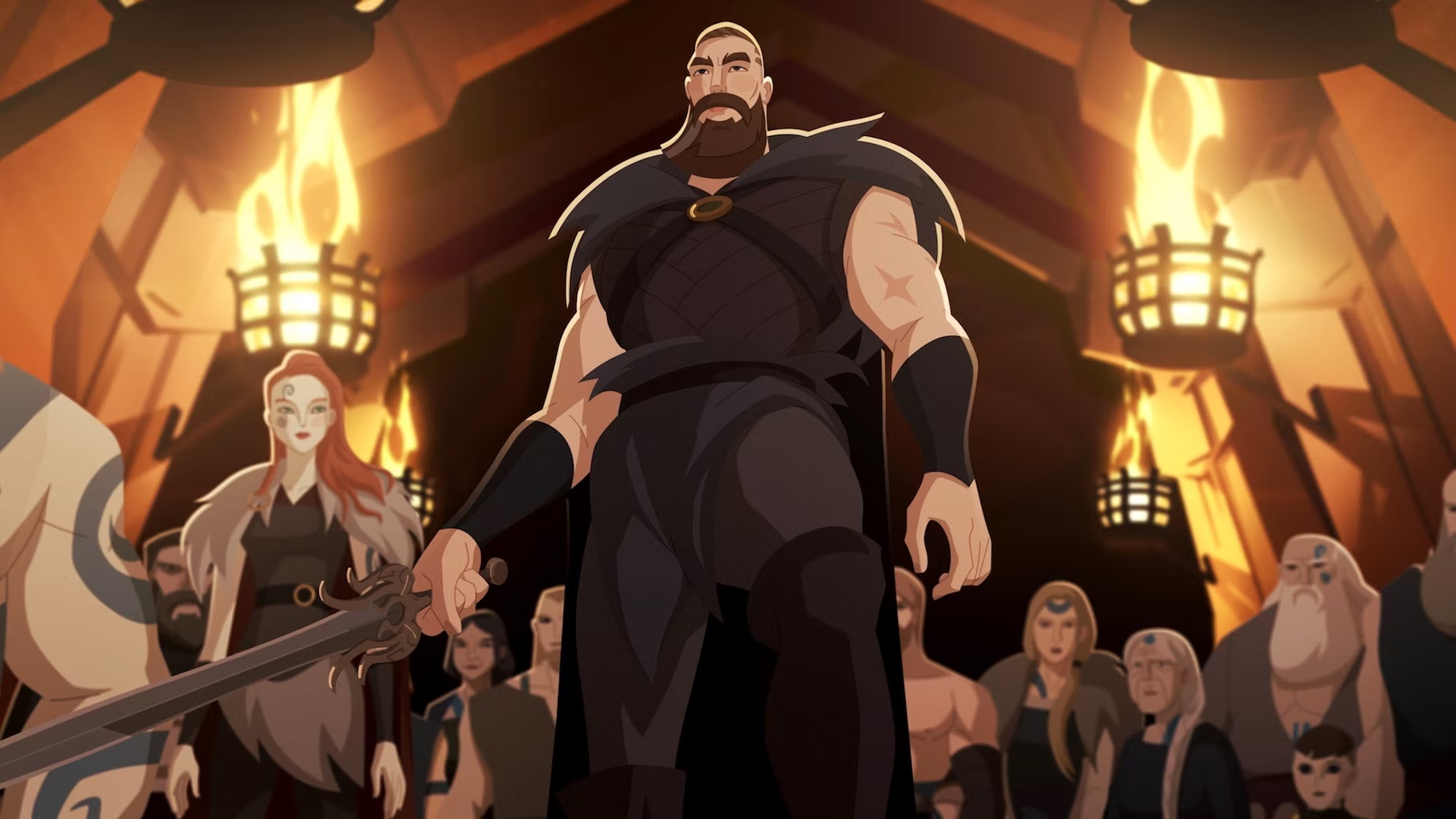
That said, there are moments where Twilight of the Gods slows down enough to explore the emotional underpinnings of its characters. Sigrid’s evolving relationship with Loki is one of the more intriguing aspects of the series. Both characters are bound by their shared hatred of Thor, and their interactions offer a glimpse into the psychological and emotional toll of living in the shadow of divine figures.
Loki, in particular, is one of the series’ standout characters. Paterson Joseph brings a depth and complexity to the trickster god, portraying him as more than just a mischievous antagonist. Loki’s grief and bitterness, coupled with his struggle to navigate the expectations placed upon him, add layers to his character that go beyond simple villainy.
The rest of the cast, though filled with potential, often feels underutilized. Andvari the dwarf (Kristofer Hivju), Egill the poet (Rahul Kohli), and Hervor (Birgitte Hjort Sørensen), while memorable in their introductions, are mostly relegated to archetypal roles. They serve as key players in Sigrid’s quest but lack the character depth needed to make their personal journeys as compelling as Sigrid’s and Loki’s. This is a shame, considering the richness of Norse mythology and the opportunities it presents for more layered storytelling.
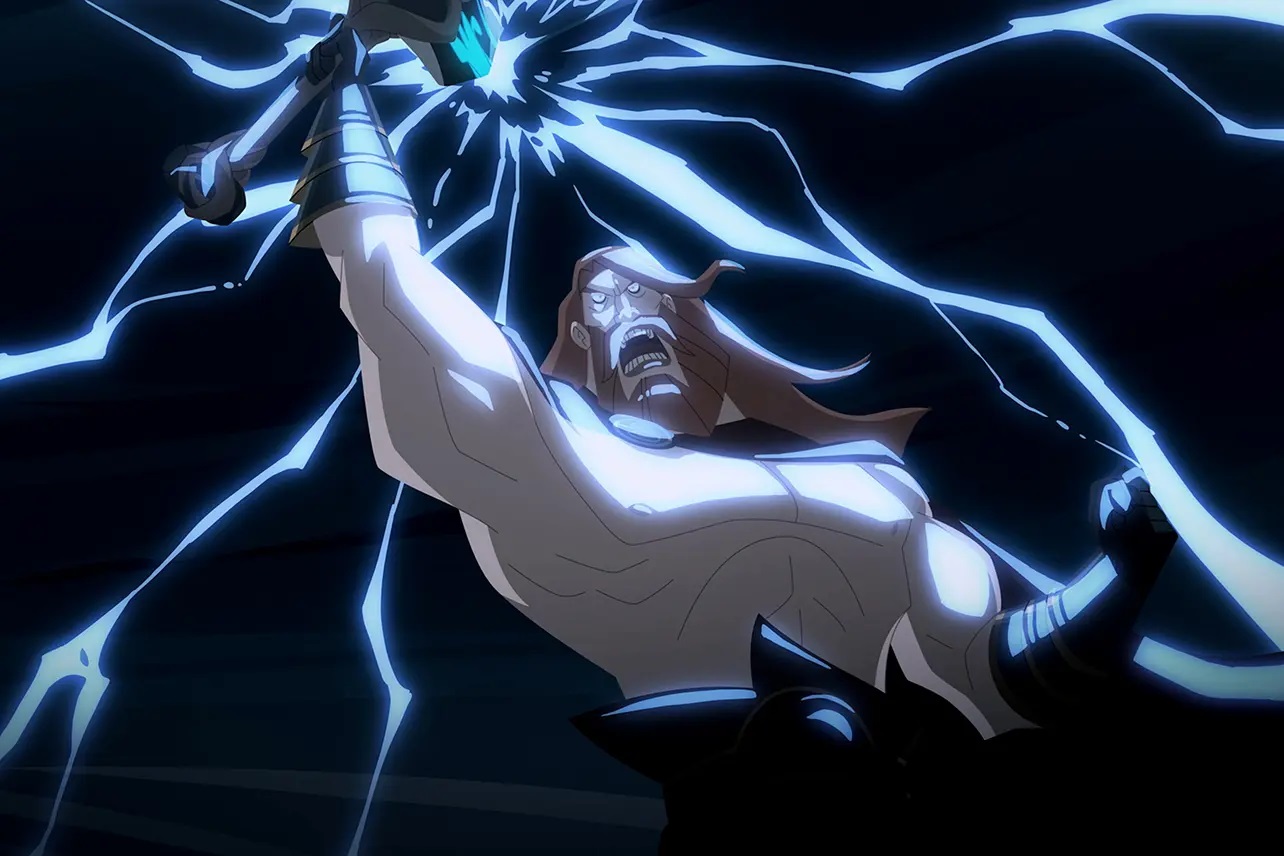
Where Twilight of the Gods truly excels is in its thematic exploration of grief and vengeance. Sigrid’s journey is not just a physical one; it’s an emotional and psychological battle against the darkness that threatens to consume her.
Her desire for revenge is fueled by her immense loss, but as the series progresses, it becomes clear that this quest may come at the cost of her humanity. The show doesn’t shy away from depicting the toll that vengeance takes on its characters, especially Sigrid, whose rage begins to manifest in increasingly destructive ways. There’s a haunting quality to her transformation, as she moves closer to the very gods she seeks to destroy.
The relationship between Sigrid and Leif also provides a poignant emotional core to the story. While Leif is just as committed to avenging their fallen loved ones, his internal struggle is more complex. Having turned away from his own violent past, Leif finds himself torn between supporting Sigrid’s quest for revenge and fearing what this path will do to her. His love for Sigrid is unwavering, but the tension between his desire for peace and Sigrid’s relentless pursuit of vengeance creates a dynamic that adds depth to their relationship.
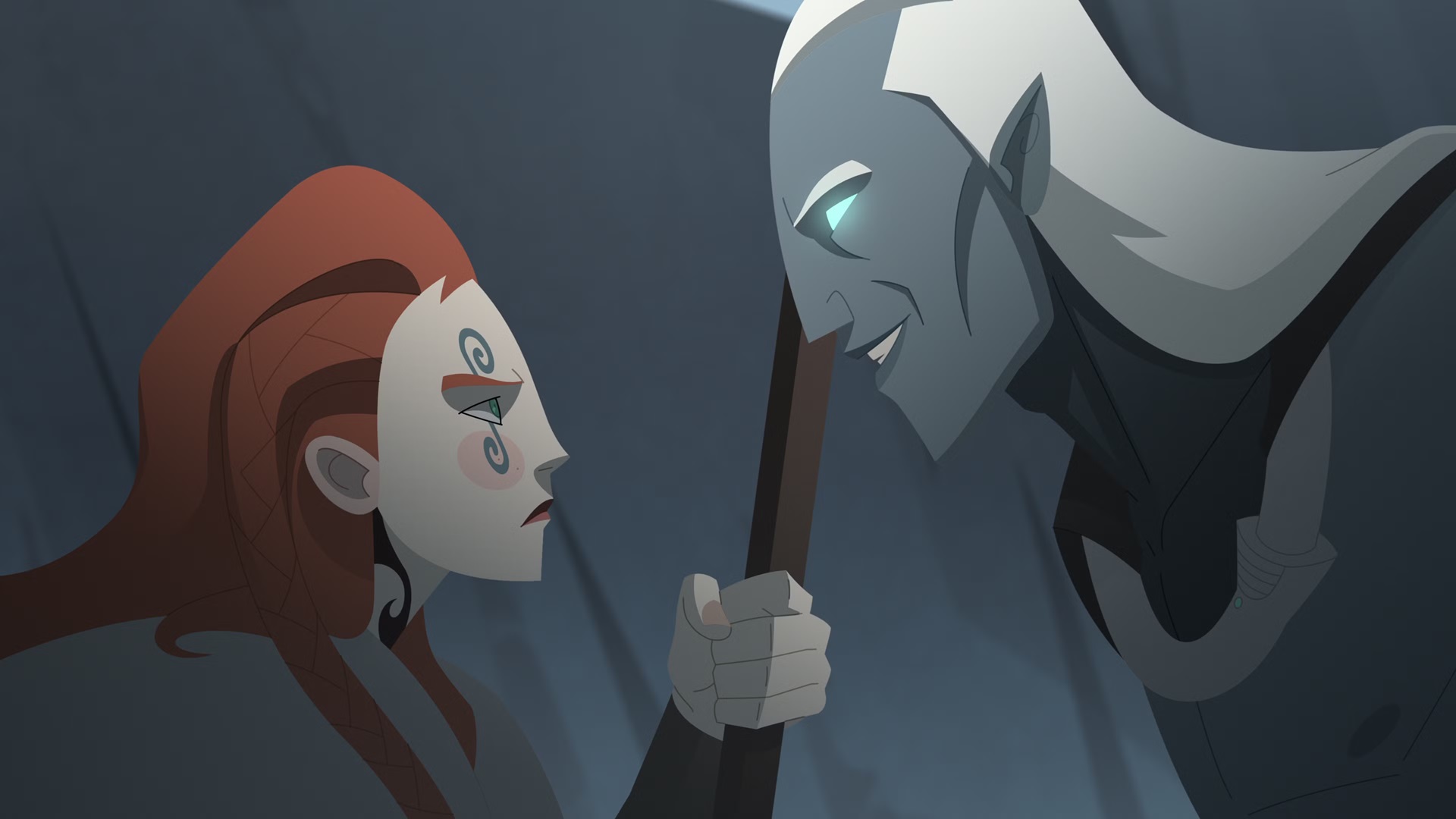
However, despite these emotional undercurrents, the series often feels like it’s rushing toward its next big fight scene. There’s a sense that the show is more interested in delivering spectacle than fully exploring the emotional arcs of its characters.
The action sequences, while visually stunning, sometimes overwhelm the quieter, more introspective moments that could have elevated the series beyond its surface-level appeal.
One of the most intriguing aspects of Twilight of the Gods is its portrayal of the gods themselves. Thor, in particular, is far removed from the heroic figure often depicted in popular culture. Here, he is a cruel and destructive force, more akin to a vengeful warlord than a protector of humanity. His violent actions set the tone for the series, where the gods are not benevolent figures but capricious beings who see mortals as mere pawns in their power struggles. This darker take on the Norse pantheon adds a layer of unpredictability to the story, as the characters are forced to confront not just the gods but the very nature of divinity.
The series’ mature content—graphic violence and explicit sexual scenes—further underscores its adult-oriented narrative. However, these moments often feel gratuitous, adding little to the story beyond shock value.
The sex scenes, in particular, are awkwardly placed and detract from the emotional depth the show is trying to achieve. While the series clearly aims to capture the gritty, raw aspects of Norse mythology, there are times when the mature content feels more like a distraction than a necessary narrative device.
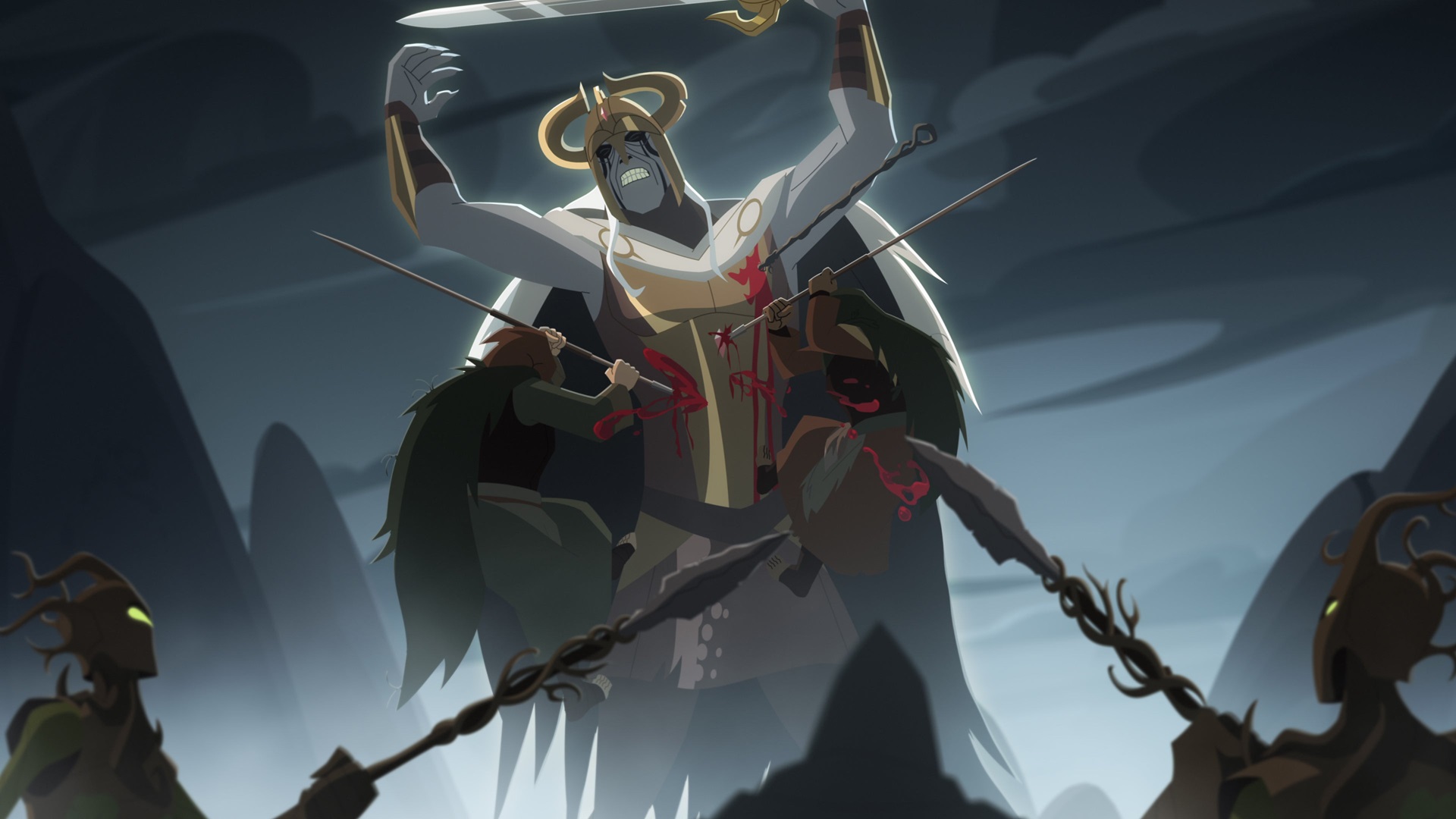
Musically, Twilight of the Gods features a score by Hans Zimmer, but the soundtrack, while serviceable, doesn’t leave a lasting impression. Much like the story, the music takes a back seat to the visual spectacle, rarely enhancing the emotional stakes of the scenes it accompanies. It’s an aspect of the show that could have been more impactful, especially given Zimmer’s previous work on projects known for their emotionally resonant scores.
As Twilight of the Gods builds toward its season finale, the stakes are raised, culminating in a battle that pulls out all the stops. The fight sequences are relentless, filled with Snyder’s trademark slow-motion and larger-than-life action. But as the dust settles, there’s a lingering sense that something is missing. The season’s emotional arcs feel incomplete, and while the show teases a potential second season, it leaves too many unresolved threads to provide a fully satisfying conclusion.
In the end, Twilight of the Gods is a visually stunning but uneven entry into the world of adult animation. It excels in its exploration of grief, vengeance, and the emotional cost of revenge, but its rushed pacing and reliance on spectacle often undermine its deeper themes. Fans of Snyder’s work will likely find much to enjoy in the show’s bold, action-packed approach to Norse mythology, but for those seeking a more nuanced and emotionally resonant story, Twilight of the Gods may leave them wanting more.
